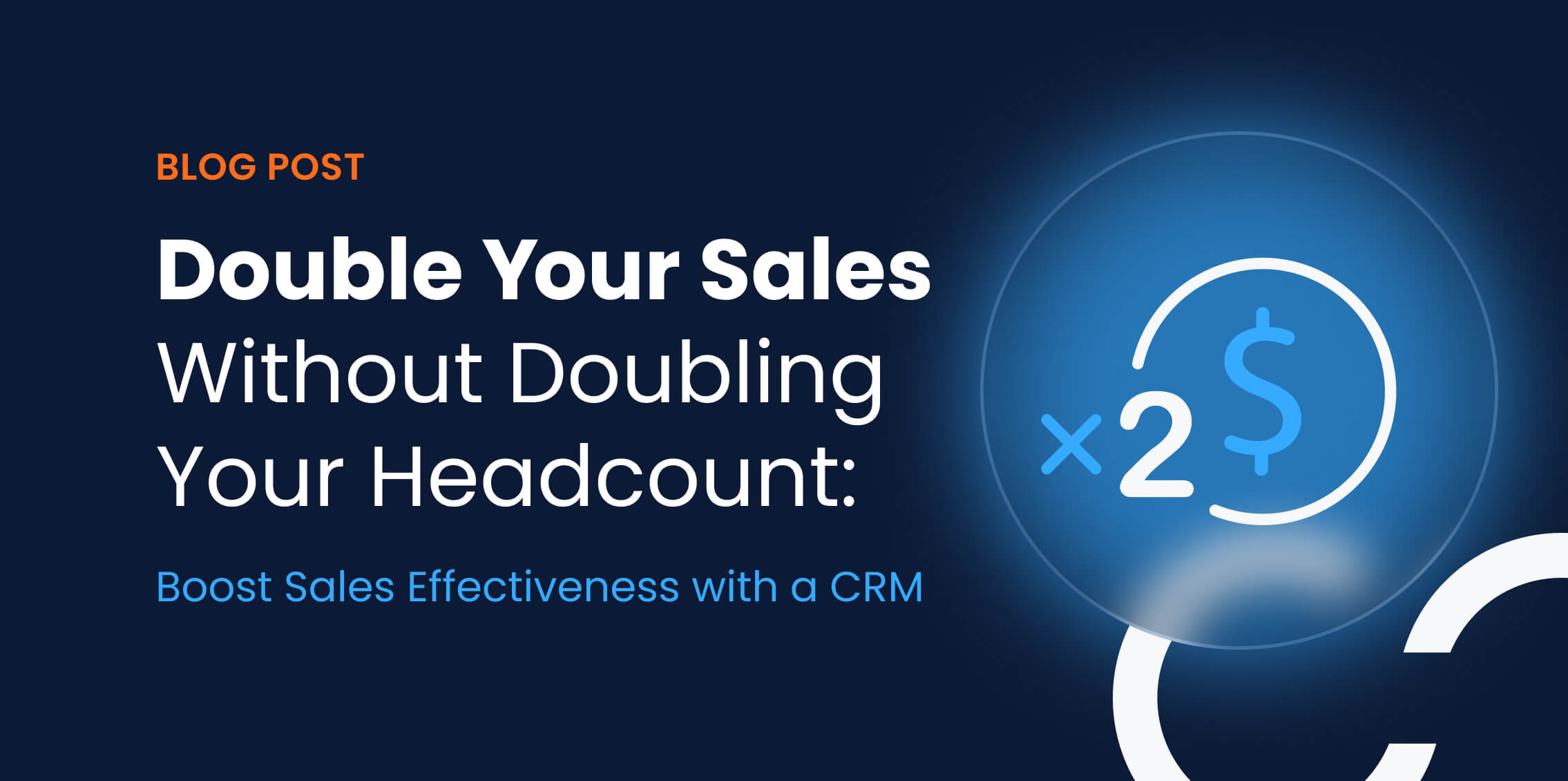
Double Your Sales Without Doubling Your Headcount: Add a CRM to Your Sales Effectiveness Framework
If you want to multiply sales, you need to have a single source of truth to measure where you are at currently and what is realistically achievable for your team. A CRM (preferably one with built-in business intelligence) built for distributors can give you the necessary insights you need to gauge sales effectiveness through actionable data and scorecards.
What is Sales Effectiveness?
Your sales reps are plenty busy following up with leads, sending perfectly crafted upsell emails to current customers, and closing deals. While your sales teams have plenty to do each workday, how can you tell if these efforts are effective?
Sales effectiveness is all about optimizing your sales processes and strategies to maximize revenue, increase customer satisfaction, and boost profitability for your distribution business. It refers to how well your reps can guide prospects through the sales journey and convert them into customers.
One of the biggest challenges distributors face when it comes to scaling sales is doing so without expanding their teams. Hiring more sales reps may seem like the obvious solution, but it’s not always the most cost-effective or practical approach.
Understanding how to measure sales effectiveness is the golden ticket to determining if your sales process and strategies are working and what needs to change to improve your sales pipeline management.
Measuring Success with Sales Effectiveness Metrics
Doubling sales is a respectable and achievable goal, but getting there requires strategy and looking at historical performance and trends to establish a timeline, strategy, and expectations. Sales effectiveness analytics worth reviewing include scorecards, quota attainment, conversions, and retention rates. You can use this data to further train and incentivize your existing sales team and determine if your goals are attainable and in what time frame.
Easily accessing the right data will help your team make strategic decisions that drive more sales. Your ERP can provide some of the necessary information you need. But to see if your sales sales process and activities are really making an impact, you may need to look beyond what you’re used to.

Achieve Sales Efficiency without Hiring More Sales Reps
The traditional approach to scaling sales often involves hiring more sales representatives. While this may initially boost sales, it comes with its own set of challenges. More headcount means increased costs, training efforts, and management complexities. It can lead to inefficiencies and decreased profitability in the long run.
During a panel I hosted at MDM SHIFT, Anne Vranicic, VP of Marketing for Valin Corporation, said automating “low-value tasks” frees up sales reps’ time to engage with prospects and customers.
Using technology to lift the human element from busy work and tedious processes also fills a space some distributors may have traditionally done by hiring a more junior member of the sales team.
You may be hard-pressed to find an enthusiastic salesperson whose dream is manual data entry and digging through their ERP to find information about a customer while on the phone with them.
Leveraging technology to do the heavy lifting helps eliminate the need for a big hiring push. Plus, more efficient sales processes also help reduce overhead costs.
Technology’s Role in Sales Transformation
The efficient approach to scaling sales involves leveraging technology, particularly Customer Relationship Management (CRM) systems. A CRM designed for distributors can streamline operations, improve customer interactions, and enhance sales effectiveness. Your sales reps can save critical time and improve overall revenue effectiveness with the right sales effectiveness tools in their arsenal.
The secret to doubling sales across the entire customer lifecycle is not only knowing how to measure sales effectiveness but also putting your customer data to work using a CRM with built-in business intelligence. Technology may not solve all of our problems, but it can be incredibly powerful in helping you develop a sales effectiveness framework that’s based on data that matters.
Rather than hiring more sales reps to follow the old scripts and hope marketing brings in new leads for them to interact with, you can empower your current team to have more productive conversations with hot leads and loyal customers using the power of technology.
If you want to speed up and increase sales, giving reps the insight they need to make every minute count toward revenue can happen by embracing sales effectiveness software, like White Cup CRM with BI.
ERP and White Cup CRM + BI: The Advantage of a Seamlessly Integrated System
One of the unique advantages of White Cup CRM is its seamless integration with ERP (Enterprise Resource Planning). This synergy ensures data flows smoothly between your various business systems, providing a comprehensive view of your operations.
By analyzing data from your ERP and CRM, you can gain valuable insights into customer behavior and market trends. This data can inform pricing strategies, inventory management, and sales decisions, enabling you and your sales reps to make more informed and profitable choices, thus boosting sales effectiveness.
For sales leaders, the real key to increasing sales among your existing team is having the right systems in place to make the right information more quickly accessible and actionable. Time is money for sales leaders, and having a customer relationship management system in place that includes business intelligence tools will give you a competitive advantage and future-proof your business.
When it comes to doubling sales without expanding your workforce, embracing technology is only going to help you achieve your goals faster. Surpass sales targets by seeing your best opportunities and gaining full visibility into every account and contact.
See how White Cup CRM + BI can help sales management and teams win more deals today.

